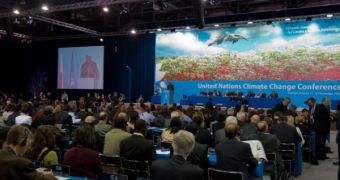The UN Conference on Climate Change, which took place in Poznan, Poland, December 1-12, yielded no conclusive results on new targets to reduce carbon and greenhouse gas emissions, following the completion of the Kyoto Protocol, in 2012. However, there were some step forward in the new summit, and officials expressed their believes that the 2009 meeting in Copenhagen would see "a clear commitment from governments to shift into full negotiating mode next year."
On the bright side of things, a new fund has been set up, that is to help developing countries offset some of the expenses they will have on keeping their rain forests. Poor nations firmly requested to have access to this fund directly, and the developed nations, after a round of fierce talks, decided that they would grant their request. The money will also help nations benefiting from it better adapt to the new international realities that will be prompted by global warming and climate change.
Carbon trapping and storage projects also proved to be a “thorny” topic, with countries disagreeing on the way the UN should go about reducing the amount of carbon dioxide that is currently being pumped into the atmosphere. These technologies, that substantially reduce all emissions, are very expensive, and poor states simply cannot afford to buy them.
This type of technology transfer will be funded via a €50 million fund, that is to be subtracted from the Global Environment Facility (GEF) organization, which now deals with providing financial assistance to environmental projects in developing countries.
A good example, applauded by environmental activists, was that set forth by a group of nations, led by the United Kingdom, that took it upon themselves to reach their nationally-imposed targets faster than 2020, which is often regarded as a turning point on the issue of global warming. The European Commission fully endorsed this initiative said to bring the group a lot of respect from other countries.

 14 DAY TRIAL //
14 DAY TRIAL //